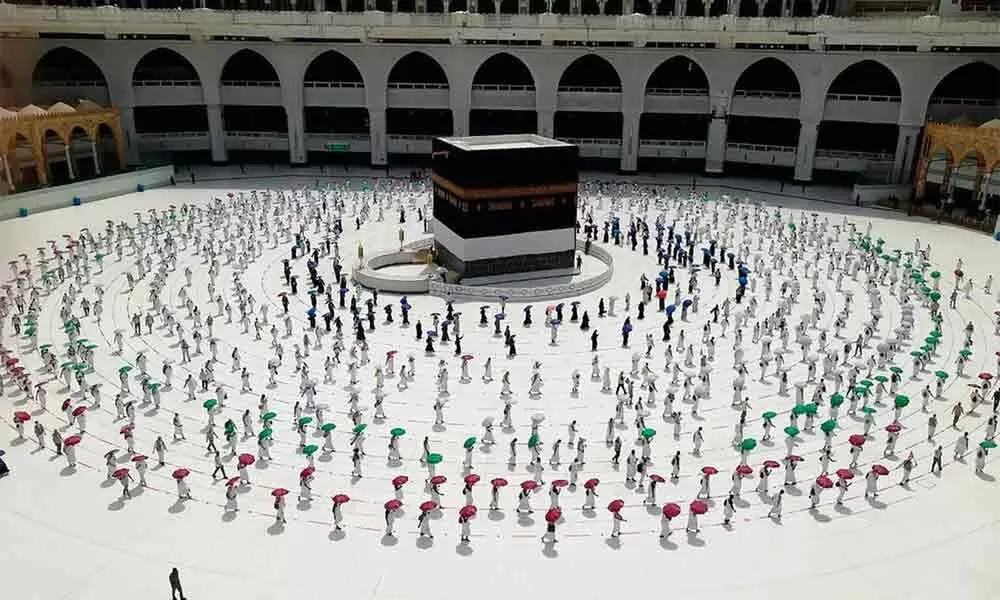Just In
Hajj 2020: Hajj During Coronavirus Pandemic; Watch how it looks like


Tawaaf taking place at Masjid Al Haram during Hajj 1441
Hajj 2020: But this year, due to coronavirus pandemic, only 10,000 people who are already living in Saudi Arabia can participate in the pilgrimage.
Hajj 2020: Hajj - One of the five pillars of Islam. The annual Muslims pilgrimage to Mecca has started, but histrionically it is different due to the pandemic. Hajj is mandatory for all Muslims who can afford and physically capable of performing it at least once in their lifetime. Hajj is a five-day pilgrimage and one of the world's largest religious gatherings.
But this year, due to pandemic, only 10,000 people who are already living in Saudi Arabia can participate in the pilgrimage. Earlier Saudi authorities said only 1,000 pilgrims residing in the kingdom would be allowed for Hajj.
Khalid bin Qarar Al-Harbi, Saudi Arabia's director of public security, said, "There are no security-related concerns in this pilgrimage, but [downsizing] is to protect pilgrims from the danger of the pandemic."
Pilgrims must wear masks and follow physical distancing during religious rites that are observed during these five days in Mecca. Those who are participating in the Hajj were subject to temperature checks, tests and kept in a short quarantine before the rites started on Wednesday.
Saudi media showed health workers sanitising pilgrims' luggage, and pilgrims were given electronic wristbands to allow authorities to monitor their location.
Kaaba is a sacred cube-shaped shrine at the centre Al-Masjid al-Haram mosque, in Mecca of Saudi Arabia. The Kaaba is draped in gold-embroidered black cloth towards which worldwide Muslims face and pray.
Muslims walk around the Kaaba seven times as part of the Hajj, which is known as 'Tawaaf'.
Watch a video of tawaaf taking place at Mecca.
A video of Tawaaf taking place at Masjid Al Haram during #Hajj1441 pic.twitter.com/tVs9vzRY0z
— 𝗛𝗮𝗿𝗮𝗺𝗮𝗶𝗻 (@HaramainInfo) July 29, 2020
This year due to pandemic touching the Kaaba is banned. All pilgrims must maintain a physical distance of five feet or (1.5 metres) during prayers.
Hajj authorities are setting up health facilities, mobile clinics and ambulances to accommodate the pilgrims. In this year Hajj foreign press is not allowed.
The worshipers were given extravagant amenity kits that contain sterilised pebbles for a stoning ritual, sanitizers, masks, jaanimaz (namaz mat) and the "ihram", a white garment worn by pilgrims, as per Hajj ministry programme document.

© 2024 Hyderabad Media House Limited/The Hans India. All rights reserved. Powered by hocalwire.com






